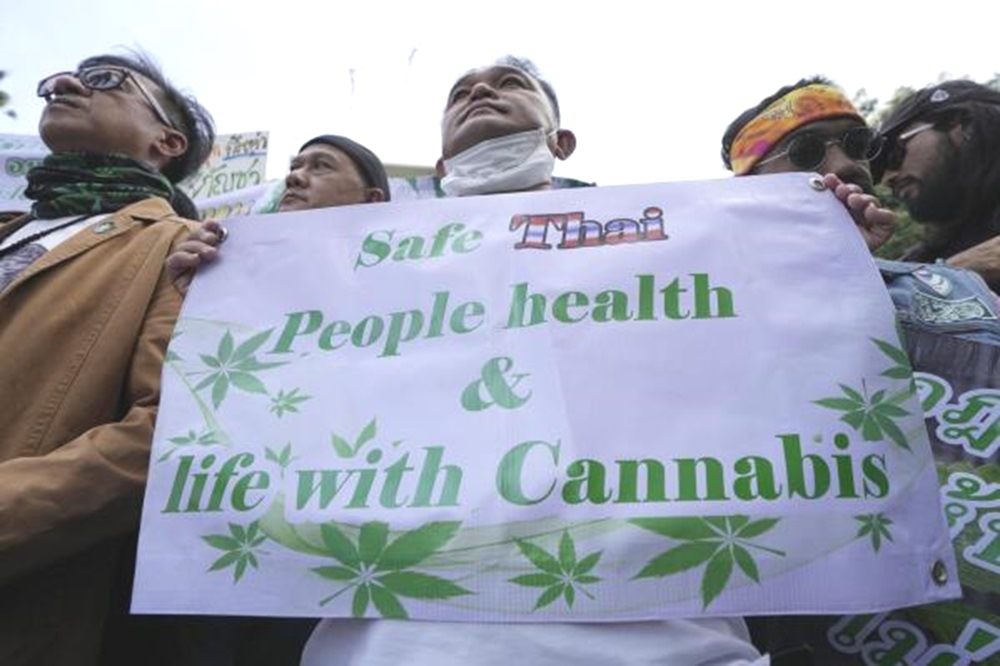Following Prime Minister Srettha Thavisin’s recent media interview, Thailand’s Public Health Minister Cholnan Srikaew voiced concern that the majority of people do not support the Pheu Thai Party’s desire to recriminalise cannabis.
Dr Cholnan’s remark came in response to Mr Srettha’s interview with France 24, a French state-owned news channel, in which he revealed the government’s plans to limit cannabis use, which was decriminalized in 2022.
During the interview, the premier stated that legalizing the plant has had a negative influence on the Thai economy, which many interpreted as an indication that he supports the plant’s reclassification as a narcotic.
“That was the view of the premier as the government has clearly stated in parliament that cannabis will only be used for medical purposes, with implications for the economy,” Dr. Cholnan said.
Currently, only items containing more than 0.2% THC [tetrahydrocannabinol — cannabis’ principal psychoactive component] by weight are deemed unlawful.
To re-list cannabis as an illegal plant, the public health ministerial notice must be altered, which would entail “clearing the deck,” resulting in far-reaching consequences since necessary ministerial laws have been adopted.
Dr. Cholnan stated that non-medical usage of the plant’s flower buds and cannabis extract with a high level of THC is against the law. Growing cannabis requires permission from the authorities.
The minister stated that consuming the buds for recreational purposes violates the law, and that cannabis stores that provide cannabis smoking for pleasure risk operating an illegal business under cannabis regulations, although being protected by Thai traditional medicine law.
The ministry has already completed a draft law on cannabis control, which is being reviewed by the Council of State, the government’s legal arm, before being submitted to parliament.
“However, the decisions regarding cannabis rest with the premier,” remarked the prime minister.
Meanwhile, Deputy Prime Minister Somsak Thepsutin encouraged the government to expedite the cannabis control bill because the law managing kratom plants is already in effect.
On April 1, he attended a meeting with connected agencies about kratom and other medical herbs, which generate an average of four billion baht in revenue for the economy.
However, if the cannabis control law is implemented, he estimates that economic profits will reach tens of billions of baht.
While the cannabis law, which is expected to be submitted to parliament for review after being accepted in its first reading in the near future, has not yet gone into effect, the plant’s use for medical purposes is made possible by public health regulations and the medicinal herb law, which does not adequately cover all cannabis use cases, according to Mr Somsak.
Massive Wildfires Rage Across Northern Thailand








